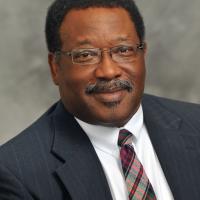Commentary on John 1:35-51
Jesus has just gotten two new disciples and those new disciples then go to recruit others to the Jesus-movement.
One of the prospective disciples asked, “Can anything good come out of Nazareth?” Nazareth sat in the heart of Galilee, a region populated by Jews and Gentiles from several ethnicities. Positively, it could be said that it was a diverse region. The Jewish communities, at most, constituted about 60 percent of the Galilean populace. Jewish persons in Judea looked down on their kinsmen in Galilee. Judea was over 90 percent Jewish. Those in Judea paid the temple tax, kept the rituals more rigorously, and were less likely to intermarry. On the other hand, Galilean Jews were less likely to pay the temple tax, more lax in regard to ritualistic traditions, and more likely to intermarry. Their Judean cousins saw Galilean Jews as less pure, if not impure.
The problem was that social factors were immensely important in Roman society. For example, Roman citizens, wherever they might reside in the Empire, had status that non-Roman citizens did not have. One’s ethnicity, nationality, hometown, family and education played a large role in determining one’s social status and how one would be perceived and received. Social status was everything. External factors were more important than internal ones.
People in the Church are no different. We want to know something about a new pastor’s background. Where is he/she from? Does she/he have a family? Who were his/her parents? Where was she/he educated? We form opinions about people often before we actually get to know them. It is as if someone could not possibly be the exception to the rule, either positively or negatively. We put more value in externals without asking what someone has accomplished or had to overcome and how these experiences might have affected them.
We do the same thing in politics. At least six of our U. S. Presidents have been war heroes (Washington, Jackson, Grant, Theodore Roosevelt, Eisenhower, and Kennedy) and at least seven have been quite wealthy (T. Roosevelt, Hoover, F. Roosevelt, Kennedy, George H.W. Bush, George W. Bush, and Trump). Indeed, if one wants to be a U. S. Senator, it helps to be wealthy.
We ministers often do the same thing. My first church was an inner city, multi-generational, and multi-socioeconomic Methodist congregation. There were approximately two-dozen families in the church. About six of those families were upper-middle class; about eight lived in public housing. The remainder was solidly middle class. At the end of my first year, I intentionally re-shuffled the trustee board and the steward board. I did not remove anyone from either board. I appointed a grandmother trustee chair. I appointed a young man steward chair who was a few years older than me. Both persons had the respect of the entire congregation. About two months later I realized what I had done by accident. I had inadvertently named persons from families which had not held leadership roles previously.
To its credit, the family which had previously held those positions embraced and supported the new leadership. And two more families felt more involved. The previous pastors had not consciously overlooked these two families. Indeed, they had appointed them to the respective boards. The persons who previously held those positions were the children and grandchildren of an outstanding pastor. They knew Methodism very well and made the pastor’s work easier. Meanwhile, gifted people sat quietly and their gifts had gone unnoticed.
While the situation in my first pastorate was not negative and did not develop into a crisis, not every situation has a pleasant ending. When we put our faith in externals in the Church, frequently we allow appearance to rule over ability and tensions arise.
- Too many church members say the right thing and their ethics end there.
- Often, we condemn those we don’t know but excuse our friends for their misdoings.
- Frequently we heap praise on our friends and completely ignore others who do just as much good work.
- Too many church members talk about love, but are themselves unloving.
- Far too many church members confess God’s grace, but are ungracious themselves.
These things occur when we lose focus on what it actually means — in word and deed — to be Christian. Problems occur when we forget that often we need to remind others and others need to remind us what it means to be Christian. When we live in externals, we are like a shallow creek which children walk across in their bare feet and their knees do not get wet.
Can anything good come from Nazareth? From Harlem? Little Havana? Chinatown?
Yes, indeed! Just come and see!
PRAYER OF THE DAY
God of all people,
You called many by name, asking them to follow Jesus and obey. Call us by name, and help us to follow and obey. Amen.
HYMNS
O Morning Star, how fair and bright! ELW 308, UMH 247, NCH 158
How bright appears the morning star H82 496, 497
All who believe and are baptized ELW 442, H82 298
CHORAL
O Morning Star, how fair and bright, Hugo Distler


January 7, 2018